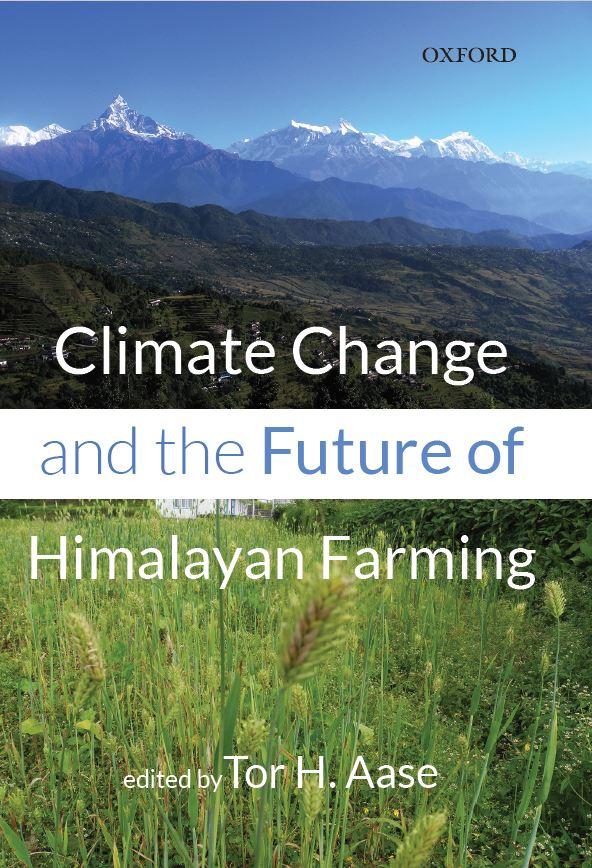Climate Change and the Future of Himalayan Farming
This new book, edited by professor Tor Halfdan Aase and published at Oxford University Press, asks to what extent Himalayan farmers and their institutions are prepared to face a future when external production conditions change.

Main content
Because farming is particularly sensitive to climate, the main theme here is to relate present farming practices to projected future climate changes. Intensive, coordinated studies of six farmingcommunities along the Himalayan range, from China in the east to Pakistan in the west, focus on their potentiality to adapt to climate changes that are projected for 2030, 2050, and 2100.
Over the past three decades,climate change and other ecological issues have wreaked havoc on diverse livelihoods in the Himalayas. This book seeks to understand the challenges faced by Himalayan farmers and their agricultural institutions under fluctuating production conditions.
Given that agriculture is most sensitive to climate change, the contributors to this volume relate contemporary farming practices with projected scenarios for the future. However, climate change is only one aspect of a wide array of factors that lead to multiple kinds of uncertainties among the farming communities. The essays use the lens of flexibility to debate and discuss farmers and farming systems that are most suited to adapt to a future burdened with uncertainty.
This volume takes a long view of the year 2100 and projects a course of action that best prepares farmers and farming communities to manage future repercussions of climate changes and other uncertainties related to the environment.
Published by Oxford University Press.
